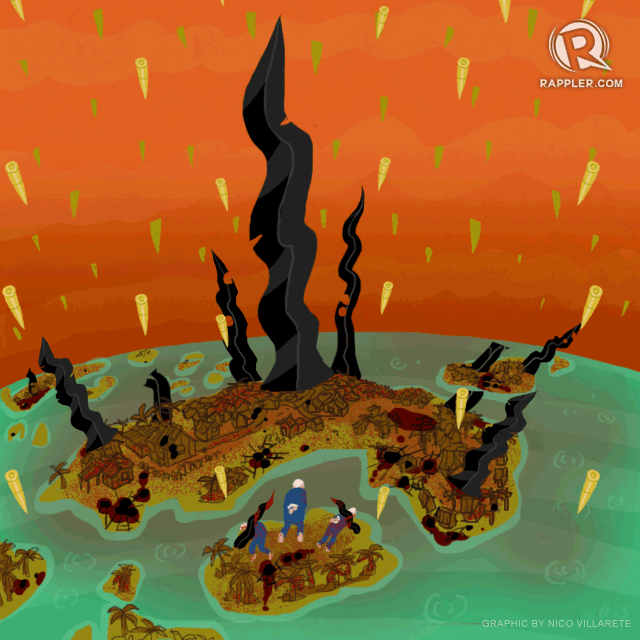The Abu Sayyaf (ASG) has beheaded 3 foreign hostages in recent months, 2 of them Canadians and one Malaysian. Before this despicable rampage, the kidnap-for-ransom group also killed a Filipino hostage.
They committed these barbaric acts not in the name of religion or their twisted interpretation of Islam but because the deadlines for the payment of multi-million pesos in ransom had passed.
An Australian hostage who was released by the Abu Sayyaf in 2012, after more than a year in the jungles of Mindanao, has narrated his story, saying that money was what his captors were after.
The Abu Sayyaf has even become more brazen, expanding its criminal operations to the seas. They hijacked vessels plying the waters at the intersection of Malaysia, Indonesia and the Philippines and kidnapped crew members.
In May, they released 10 Indonesian sailors whom they kept hostage for a month after ransom was paid.
The military has been going after the Abu Sayyaf for years but there is little to show for their vaunted offensives.
The hard truth is: no amount of ammunition and military maneuvers can emaciate the criminal gang for as long as they enjoy the support of the community and the local government officials. The support is rooted in relationships – Abu Sayyaf members have a network of families and relatives that provide them protection – and money.
The kidnappings have become a lucrative business, embedding the Abu Sayyaf into the local economy of Sulu. Cash is shared with residents, corrupt officials and military commanders.
Prominent Muslims have called out local politicians for their failure to decisively act against the Abu Sayyaf. The National Ulama Conference of the Philippines decried the “insensitivity” of the “regional, provincial, municipal, and barangay” officials and blamed them for their “lack of cooperation with the PNP and the AFP to eliminate this terrorist group.”
For his part, Mujiv Hataman, governor of the Autonomous Region in Muslim Mindanao, said “its time for the government to hold them [local officials] accountable and responsible."
We agree. This constant charade in Sulu, for example, has to stop – when victims are released at the doorstep of a local government official as if he should be praised, rather than questioned, for the series of kidnappings in his province.
As a local official who has lived in Mindanao, President-elect Rodrigo Duterte knows the political and physical terrain of Sulu and Basilan, lairs of the Abu Sayyaf. He knows that barangay captains, mayors and governors have a pivotal role to play in defeating the lawless Abu Sayyaf.
It is now up to Duterte to deal with this crisis.
http://www.rappler.com/views/animated/136961-defeating-abu-sayyaf


No comments:
Post a Comment
Note: Only a member of this blog may post a comment.